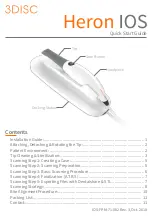
25
VR800 Owner’s Manual (Before Starting)
<Notes on digital recording>
During S/P DIF and adat digital recording, the VR800 records “data 0” (this is called “mute recording”). When one second
of consecutive data 0 is input to the VR800, it creates a “0 file” and limits the consumption of disk space. However, repeating
this operation will eventually increase the number of events, leading to “event number overflow.”
ABS 0
REC END
Recorded part
Silence
Audio File 1
Audio File 2
Audio File 3
Audio File 4
0 File 1
0 File 2
Usually, an event is created by one recording or edit. The number of events increases or decreases depending
on the number of edit points or the amount of disk free space. (VR800 disk management operates in such
way that the number of events will decrease.) The number of events does not affect usual music production.
However, if a small amount of single-track data is written in many different sections on the disk, the
maximum number of events may be reached. To avoid this “event number overflow,” you need to check
the number of events for each track. The VR800 provides an event check menu in Setup mode for this
purpose.
Audio file and event
<About an audio file>
During recording, the VR800 consecutively records an independent audio file (recorded area) in each
track of each Program. However, you can record data on the VR800 at any point within 24 hours of ABS
time, and you can intentionally create silence between two audio files. In this case, a silent part is counted
as a 0 file.
Therefore, audio files and 0 files are consecutively created as shown in the diagram below.
The total number of these audio files and 0 files is called “the number of events.” The maximum number
of events is 512 per track (tracks 1-24). After the number of events reaches 507, new data will not be
recorded.
What is an event?
As shown in the diagram below, the number of events can be eleven or more if partial recordings are made.
This is because an unrecorded part is regarded as an event, and a recorded part is also regarded as an
event(s). The duration of each event can vary from 740 msec to 23 hours 59 minutes 59 seconds (FS =
44.1kHz).
An unrecorded part (zero file) is always regarded as one even, regardless of its duration.
However, a recorded part can consist of a group of multiple audio file, as shown in the diagram below.
More precisely, one audio file will be divided into multiple audio files if perform many editing operations
(such as , copy & paste, move & paste, etc.) on this audio file. Multiple audio files created in this way are
regarded as events. (If you do not edit the data at all, the audio file remains in one piece and is regarded
as one event.)
In this example, one recorded area consists of six consecutive audio files. This means that this part consists
of six events.
ABS 0
REC END
Recorded part (shortest: 740 msec., FS=44.1kHz)
Unrecorded part (shortest: 740 msec., FS=44.1kHz)
ABS 23h 59m
0
1
2
3
4
5
6
7
8
9
10
11
Event Number
















































